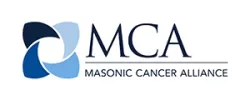Navigation & Survivorship News
Keeping Track Leads to Success
Keeping track of your responsibilities and duties could help to further develop your patient navigation program.
Insights into Navigation: Cancer Patients and the Holidays
The holidays are a challenging time for everyone, and can be even more so for those who are underserved and going through cancer treatment.
Members Memo: Welcome to the New 2017 Local Navigation Networks!
It has been an exciting summer and fall as new LNNs have formed to promote oncology navigation in their areas! Many are new, some have been meeting regularly for years and others are adventuring out in a new format!
Plus Pointers: Patients Capacity to Self-Advocate
The power imbalance between patients and providers cannot be overstated. As a navigator, you should assess patient understanding by assessing patients’ capacity to self-advocate, and help them optimize time with their doctors and treatment team (eg. prioritize questions, clarify information with treatment team).
Insights into Navigation: Financial Toxicity—When will it End?
Sadly, the answer to that question in the headline is likely “never.” Drug expenses are continuing to climb as newer and more sophisticated treatment options are being released for standard of care, co-payments and deductibles will continue to go up instead of down, and people cannot afford in most cases to take off from work for their cancer treatments.
Members Memo: Workplace Transitions
Did you know that one in four employees will be diagnosed with cancer? There are some resources that can help you.
Plus Pointers: Ongoing Professional Learning
One way to improve upon your professional skills is to perform learning activities that address one's gaps in knowledge, skills, attitudes, and abilities so you can help identify these patients.
Insights into Navigation: Making the Most of Your Appointments
If you only had 1 minute with a newly diagnosed cancer patient, how would you spend those 60 seconds?
Members Memo: Nutrition's Role in Cancer Care
Did you know that as little as a 6% weight loss predicts a reduced response to oncology treatment, reduced survival, and quality of life?
Plus Pointers: Continuous Learning
As a support provider to patients as they move through the healthcare system, a patient avigator must be educated and trained to effectively address the continually evolving needs of their patients.
Thank You to Our Corporate Sponsors and Alliance Partners!
-

Major Corporate Sponsor
-

Patron Corporate Sponsor
-

Patron Corporate Sponsor
-

Patron Corporate Sponsor
-

Industry Relations
Council Member -

Industry Relations
Council Member -

Industry Relations
Council Member -

National Alliance Partner
-

National Alliance Partner
-

National Alliance Partner
-

National Alliance Partner
Privacy Notice | Terms of Use
© 2009- DBA AONN+ Academy of Oncology Nurse & Patient Navigators® | PO Box 563, Cranbury, NJ 08512 |
AONN+ DBA AONN+ is a 501(c)(6) organization under federal tax guidelines. AONN+ Foundation for Learning, Inc. a 501(c)(3) organization under federal tax guidelines.
AONN+ Advantage, LLC, a wholly owned subsidiary of AONN+.


